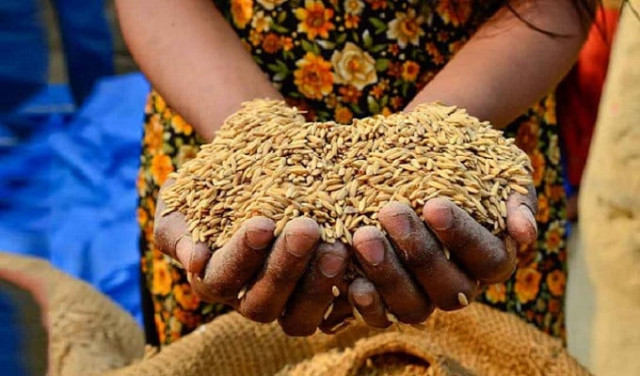Food prices soared by up to 30% in Pakistan: WB
Russia and Ukraine war caused poor countries to suffer from food and debt crises

The World Bank has said the prices of food items in Pakistan had increased by 5% to 30%. This was stated in the “World Food Security Update Report” released by the WB.
According to the report, the war between Russia and Ukraine has caused the poor countries to suffer from food and debt crises.
African countries are facing the worst food shortage in 40 years and inflation is in double digits in many low-income countries, including Pakistan.
Food inflation is high in all middle-income countries.
The report added that global prices, including those of agricultural products, had been stable for the past two weeks and an agreement had been reached between Russia and Ukraine to release 20 million tons of wheat.
The deal last month between Ukraine and Russia, brokered by Turkey and the United Nations, to allow container ships carrying cereal to leave Ukrainian ports helped bring commodity prices down.
The WB report showed a dramatic reversal of cereal prices on global markets since June and a steep fall in the price of other agricultural products to lows close to those seen last year.
The report stated that the war in eastern Europe would hit many countries with an increase in food bills worth more than 1% of their annual national income, while others would fail to contain the impact and be plunged into a full-blown debt crisis.
Lebanon was the worst-hit, the WB report read, after a food grain store explosion in Beirut two years ago crippled the country’s ability to hold and distribute maize and wheat to its 6.8 million people.
Food inflation in Lebanon hit 332% in the year to June, ahead of Zimbabwe’s 255% increase and Venezuela’s 155%.
Turkey was fourth with a food inflation rate of 94%.
Low food prices have underpinned global growth in recent decades, offsetting the high cost to developing countries of servicing their debts and imports of fuel.
However, the WB report stated that the shock increase in food prices over recent months was affecting most economies, including those with relatively high incomes.
“The share of high-income countries with high inflation has also increased sharply, with about 78.6% experiencing high food price inflation,” it read.
“The most-affected countries are in Africa, North America, Latin America, South Asia, Europe, and central Asia,” it added.
It further read that large producers of grain, including France, Spain and Italy, would need to adjust to rising temperatures and uncertain weather patterns driven by the climate crisis to maintain high levels of production.



















COMMENTS
Comments are moderated and generally will be posted if they are on-topic and not abusive.
For more information, please see our Comments FAQ